Most people, including myself (who travels full time) have tons of questions about traveling to Kenya, with no clue where to start.
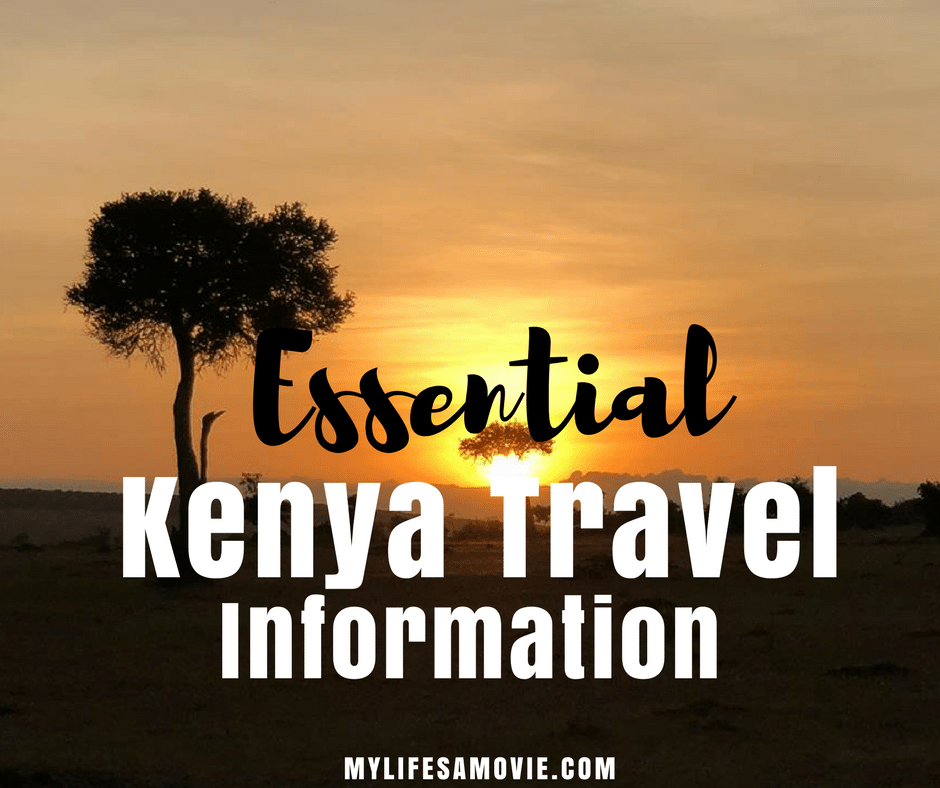
Luckily I am here as your travel guinea pig, to research what I can, test it out, and see what it’s really like, and what you need to have an awesome, safe, trip! I decided to go to Kenya last minute for a solo safari, which means I didn’t have much time to prepare, and still made it there seamlessly, which means you really shouldn’t worry too much!
I did learn some lessons along the way, all of which is in this easy to read guide of essential Kenya travel information!
If you’re thinking of planning a Kenya safari, start here, then read my next posts on ‘How to Plan an Affordable-ish Safari’, then ‘Kenya Safari Packing Guide’!
Getting to Kenya:

Flights
Probably going to be expensive either way. If you really want to try and snag a deal, try flying to Europe first and playing around with departure cities to see who has the cheapest flights over to Nairobi. I was already in Norway and found the cheapest flight from Lithuania, so I just made an impromptu trip there first to get a better flight deal.
I have a few posts on how I play around with flight-finder websites in order to hack my way to cheaper flights, this is a good tutorial for that: ‘How to find the cheapest flights using the Flexible option’
Visas & Immunizations
You can quickly and easily apply for a visa for Kenya online now through this website: eVisa Kenya
You can also do it upon arrival but doing it online is way easier and more convenient.
You’ll need for the eVisa (for U.S. citizens):
- Names, Addresses, Phone numbers of the hotel and or safari you’re going on (my tour sent me an official invitation and itinerary to show but I didn’t even need it)
- Photo of your passport page
- Photo of a passport photo (different from your actual passport photo)
- Photo of your itinerary
- $51 USD paid by credit card
**If you do this last minute and they don’t send your electronic visa in time, PRINT the eVisa payment confirmation page…they can scan it and it works the same.
For Visa Upon Arrival
You’ll need all of the above but in paper form. So copies of your passport, hotel confirmation, safari confirmation, itinerary, actual passport-sized photos, and $50 in CASH (undamaged bills). AKA way easier to do it in advance.
Do you need Yellow Fever Vaccine?

Only if you’re coming from an area that is a Yellow Fever zone. You can see a list of them here: Yellow Fever & Malaria Areas
If you’re coming from the US or Europe you don’t need it. BUT, if you have a tendency to travel new places at random, or don’t want to risk being asked for a bribe, do yourself a favor and just get the shot while you’re at home, just in case!
UPDATE: Since traveling to Tanzania after Kenya, I have been required to receive the Yellow Fever immunization shot upon arrival at the airport! It’s because I was in Kenya which is a Yellow Fever Zone and Tanzania is not and doesn’t want it getting spread to their people. That being said, if you’re going to Kenya, you should get the Yellow Fever shot since it IS in fact a place where you can contract it! Yellow Fever has no cure BTW!
Also…it cost me $50 in cash to get the shot at the airport in TZ…if you’re in the US and finding there is a backorder of the immunization, you may be able to get it once you get to Kenya.
Arriving:
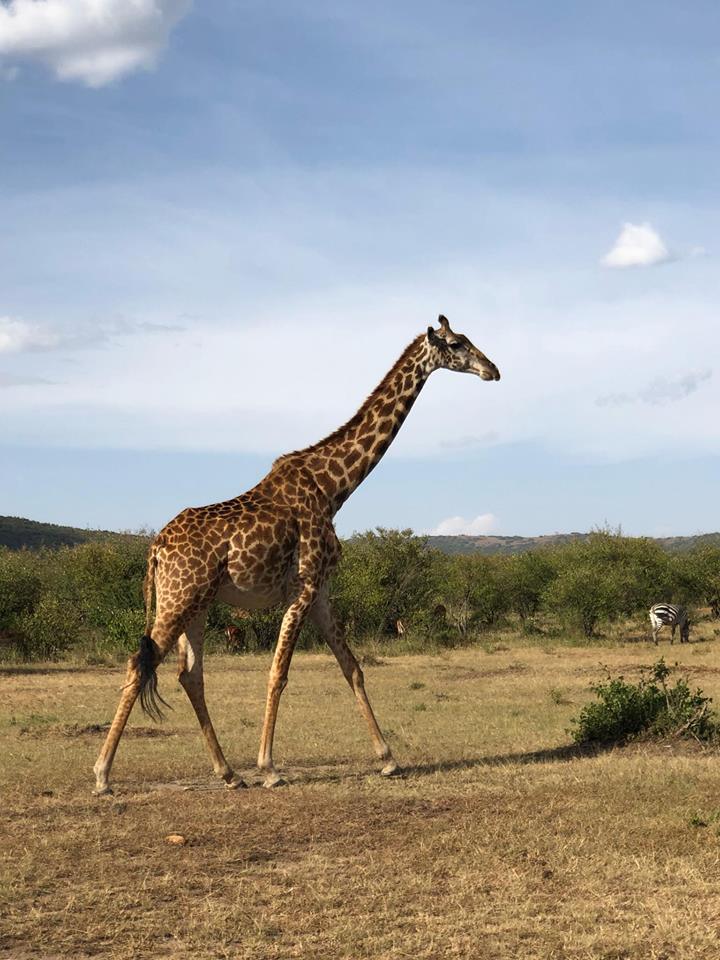
Airport Pick Up
Arrange with your tour company or your hotel to be picked up from the airport. It’s the easiest way especially if it’s your first time in Kenya It cost me $15 USD for a ride to my hotel in central Nairobi, including the extremely long time it took in traffic!
Now that I’ve been here for a week though, I’ve discovered that there’s also Uber here, and the fare is about $8-$12. You probably already have it, but if not, my code is ‘6aim9’ 😉
Money
Take Ksh (Kenyan Shillings) out from an ATM at the airport when you arrive. I got by for five days using only about $100 (Ksh 10,000) for souvenirs and tips. U.S. dollars can also be used and sometimes preferred because they can exchange them for more shillings than the exchange rate will give you!
An easy way to remember the exchange rate is roughly $1 USD = 100 Ksh
Or even easier, just download the free super-basic app called Units Plus.
Phones/Data/WiFi
Usually I use a WiFi hotspot when I travel but it doesn’t work in Africa. Kenya was actually the first time I bought a local SIM card and I was really surprised with how cheap it was and how well it worked!
You can also get these at the airport and the person working the booth (use either SafariCom or Airtel) will set it up for you.
It should only cost about 100 Ksh ($1) for the SIM card, and then I got the max data for 7 days which was like 2GB for only 200 Ksh ($2), and that lasted me for 5 days when used wisely. As in, checking my mail sparingly and posting on Instagram once a day.
WiFi can be found at most hotels and restaurants, but not likely at your camp in Masai Mara.
About the People
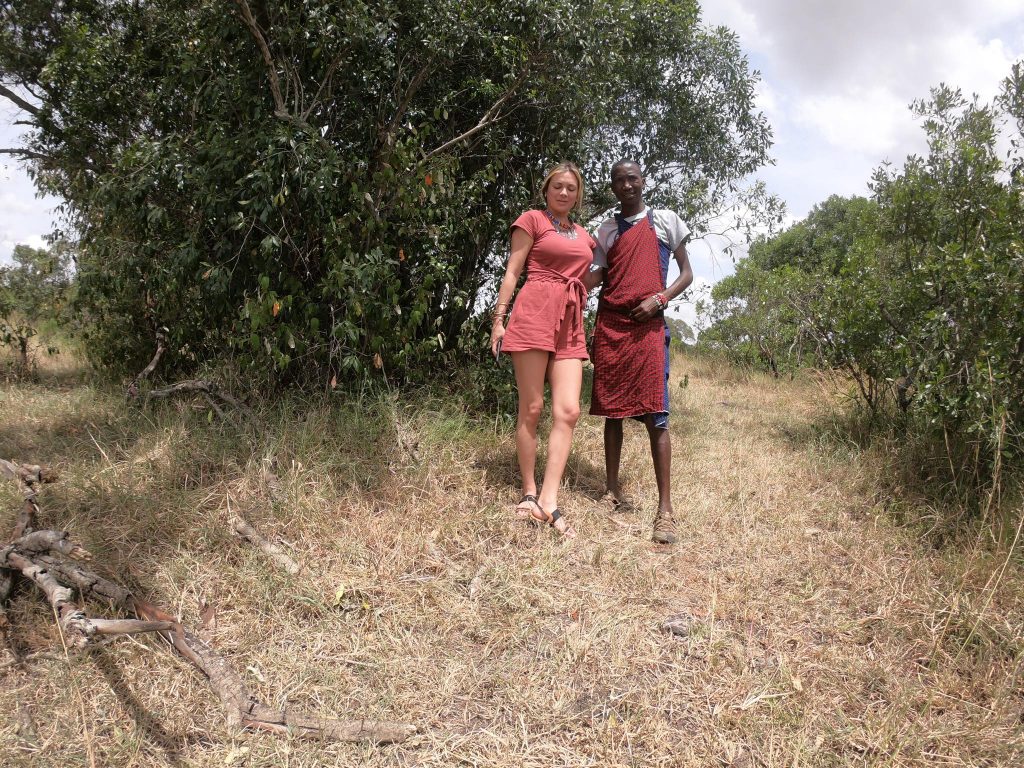
Culture
The people in Kenya, especially Nairobi, are very intellecutual, respectful, and friendly. Nairobi is a massive innovation hub with many schools and a big U.N. community. Essentially, the people here are just like people in the US…except they can all speak more than one language!
There are two main indigenous tribes that are still prevalent and practiced in Kenya; the Samburu and the super popular and recognizable Masai, who still wear the red colored garments called “shuka” and hold their distinctive ball-ended sticks, even outside of their villages! I met one young Masai man at my safari camp who said he goes to university and is only one of two Masai in his class, and he still proudly wears his shuka over his regular clothes!
More on Masai: Masai are polygams, which means one man usually has several wives. He has to pay a dowry to the women’s families which is dependent on how high he can jump compared to other men in the village. You can see paintings and icons of this act all over Kenya (and the internet). The dowry is usually paid in cows and other live stock. You can see young boys and men herding these animals all around Masai Mara, which will likely end up as a dowry!
Masai people love to share about their culture, so if you meet one, be sure to ask lots of questions!
PRO TIP: Don’t go to Kenya with a stereotype that everyone dresses like the Masai do! The majority of people dress just like you and I!
Language
It always makes me laugh a little when people automatically assume English isn’t spoken somewhere. The majority of the countries in the world can speak English as their second language…#funfact.
That being said, English is fluently spoken in Kenya, but their native language is Swahili. If you can speak a few words of Swahili like I can, you’re gold (not to mention super respectful).
Here’s what I know in Swahili:
- Asanti Sana: (yes like what Rafiki chants in Lion King) Thank you very much
- Karibu: (like the animal) Welcome – used to actually welcome someone and for “you’re welcome”
- Hakuna Matata: Really actually “it means no worries”
- Jambo: Hi
- Mambo Poa: Hi how are you
- Poa Poa: Good how are you
Religion
Kenya is a predominantly Christian country with a small Muslim and even smaller Buddhist and Hindu population. You’ll see see some women wearing hijabs (head coverings) and can hear the call to prayer from the mosques, but you don’t need to be as concerned about covering your shoulders. You may also see people covering their heads because it’s hot AF!
Here’s the stats:
80% Christian
10% Muslim
10% Other
Safety
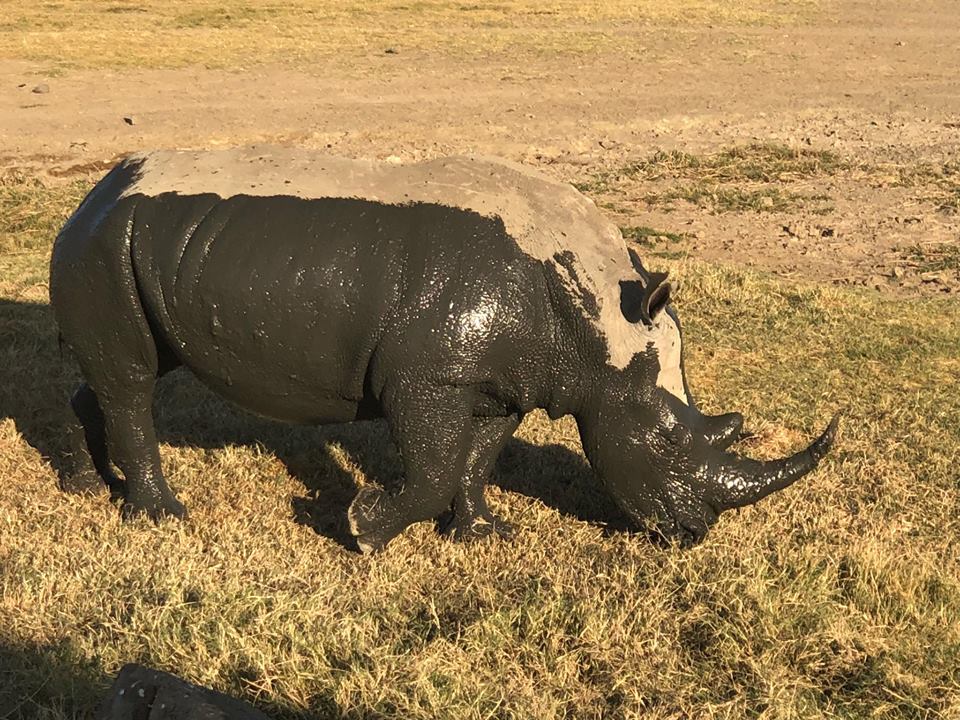
In the Big Cities
In Nairobi, as with any big city, you should mind your belongings. I was warned twice by guides to not text in the car or have my phone on my lap because people snatch them through the windows and run away. I also have been warned about this in several other countries.
Other than that, don’t be worried about harassment, getting kidnapped, etc. As I said the people here are very respectful and likely just want to welcome you to their country. I walked around by myself in Nairobi and had no problems. In fact, I was overly-helped when looking for shoes…the guys literally got down and starting untying my smelly hiking boots to help me try the other shoes on!
Outside of the Cities
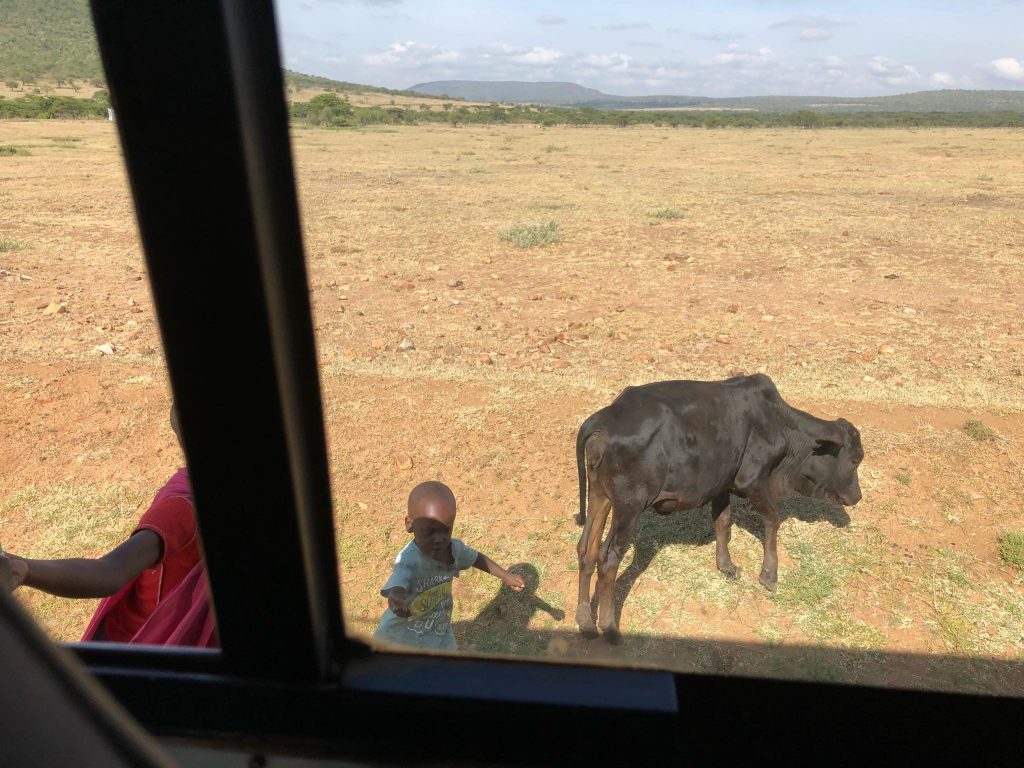
Outside of Nairobi near the safari parks is very safe (unless you taunt a Rhino or something). Everyone literally wants you there and wants you to love Kenya! You may feel overwhelmed when the locals try to sell you souvenirs, especially going in and out of the park, but even with twenty women shoving bracelets through the window onto my lap, not one of them touched the GoPro or iPhone that was also there, and when I gave one lady 1000 Ksh needing 500 Ksh back in change, she literally ran to go get it and bring it back to me!
Tip: As with many places in Africa, kids will run up to the car and ask for “sweets”. There’s conflicting arguments about this where guides/locals say it’s Ok to do, but other people who say the sugar and consistency of the candy would be bad for their teeth…so use your own judgement!
Safari Safety and Etiquette
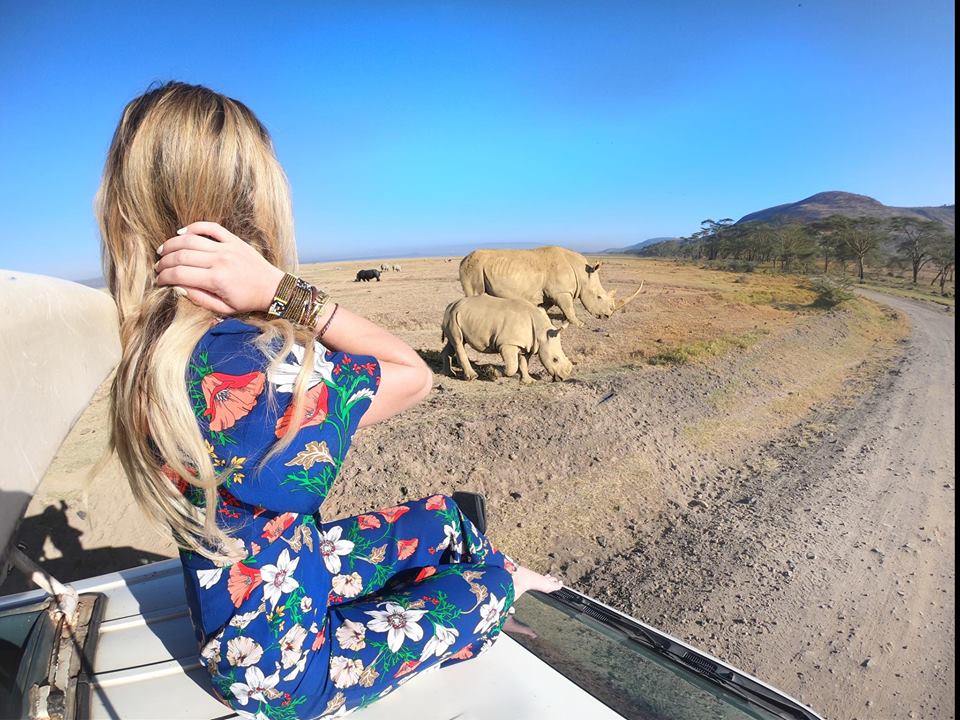
To be completely honest with you, people and guides were way more lenient and easy going on my safaris in Kenya compared to South Africa and Namibia. But for the sake of being a “good influence” here are my proper tips…noted in quotations because they are according to “the rules”:
“Stay Inside the Vehicle”: This is obviously for your safety. You can’t just get out and walk around and try and take a selfie with an elephant or lion. You’re technically not even supposed to have the windows rolled down since “a lion could sneak up and attack”, and it happened once a few years ago. Also, just a few days ago a young girl got mauled by a lion because she wasn’t in a vehicle (not sure the full details of why or what she was doing but it was on a private game reserve).
“Stay 300 Feet From Animals”: This is the magic number you’re told in case you happen to encounter an animal, which you will. Although if you’re stationary in a vehicle, and they’re coming towards you, I feel like that’s fair game UNLESS it’s a lion, rhino, hippo, or buffalo. Then you need to scream at the driver to GO.
“Don’t Wear Bright Colors”: Some people say it can aggravate the animals. But I have a slightly hard time believing a color would aggravate an animal over the loud rambunctious safari vehicles. Also, the native Masai people’s signature color is red and they have lived around the animals for centuries. So yeah, I don’t understand this one, but use your judgement with neon or flashy things. You can see what I wore and my suggestions here: ‘Kenya Safari Packing Guide’.
Tip Your Guide: This one I will fully back since I heard a few people talking about under tipping for reasons that were in no way our guide’s fault. Bottom line is that your guide has to drive a ton of hours on horrible roads, be responsible for your safety, happiness, and agenda for a few days, and be away from home so you can be too. Weather, breakdown’s, and animals sleeping instead of coming up to the van are not reasons to not tip. Aim for $8-10 or more dollars per day you’re on safari!
Have any other questions about Kenya travel tips? The best way to get ahold of me is to comment below or leave me a comment on Instagram which I check more frequently!
If you enjoyed or found this post useful, please give me a few minutes of your time and share it on social media! It’s how I’m able to keep this thing going and providing everyone with free tips and info! Thanks!!
Other Useful Kenya Safari Posts:

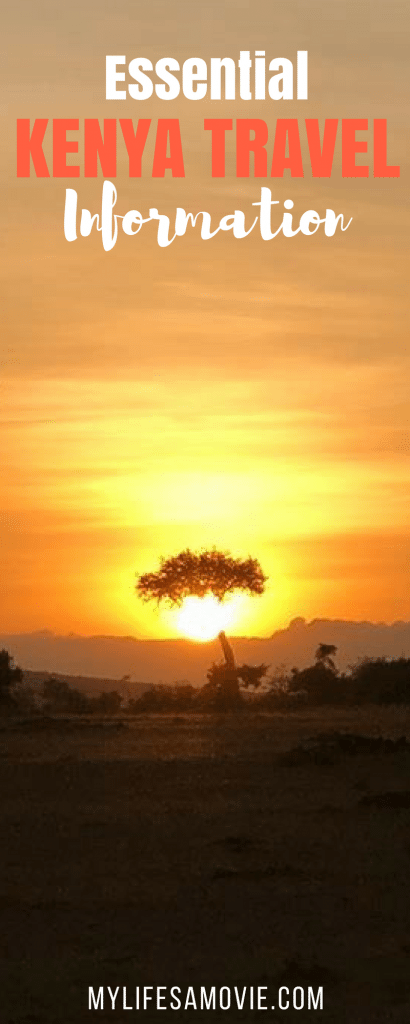

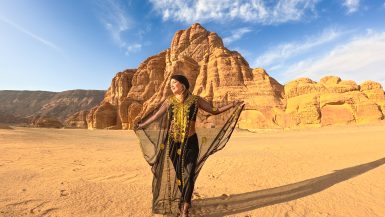

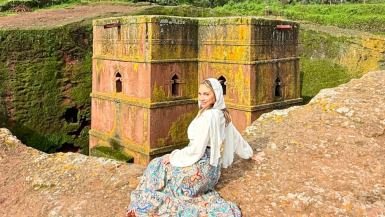
Hi Alyssa Ramos,
I am so glad to read your articles, as I love to travel and explore the world. Love this post!!
Thank you!!